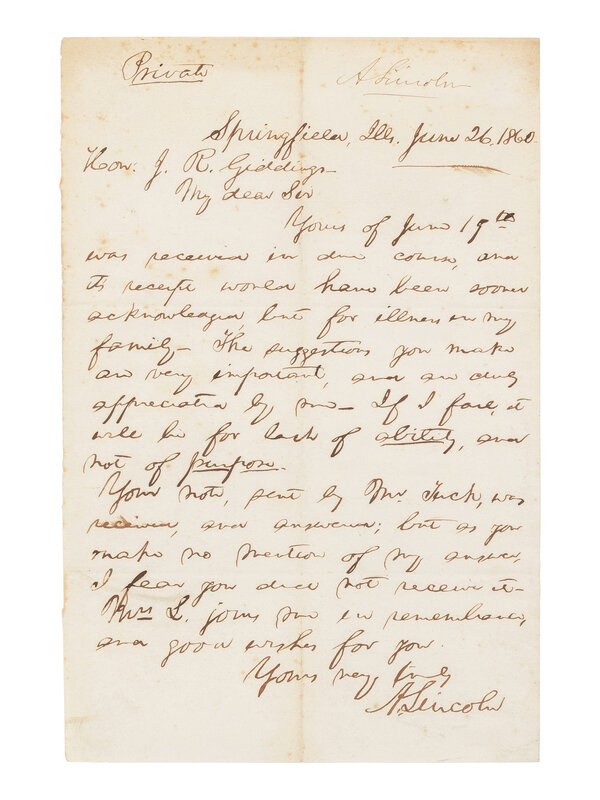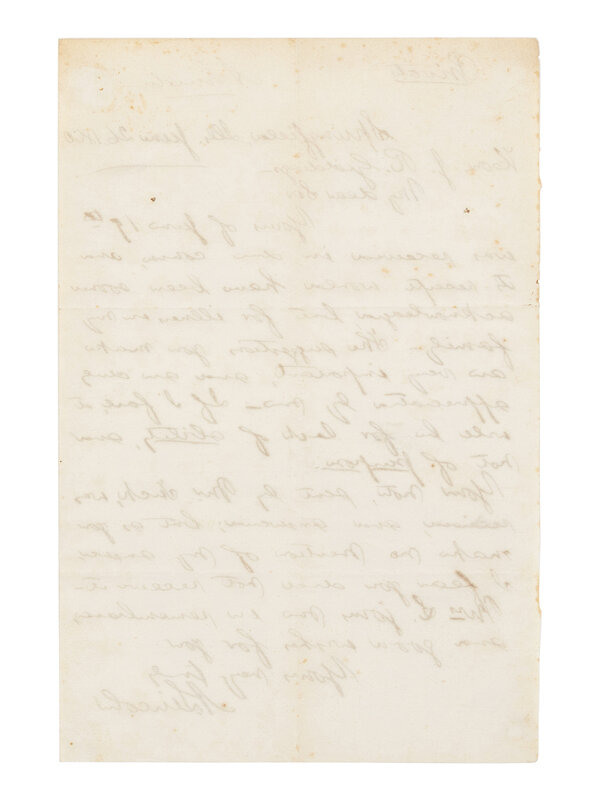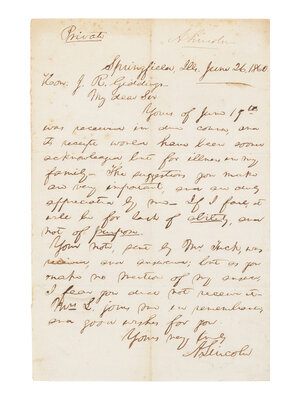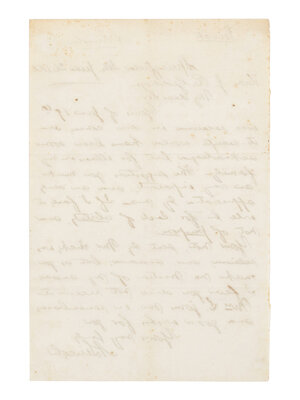Condition Report
Contact Information
Auction Specialist
Lot 56
Sale 6441 - Lincoln’s Legacy: Historic Americana from the Life of Abraham Lincoln
May 21, 2025
10:00AM CT
Live / Chicago
Own a similar item?
Estimate
$80,000 -
120,000
Price Realized
$114,800
Sold prices are inclusive of Buyer’s Premium
Lot Description
LINCOLN, Abraham (1809-1865). Autograph letter signed ("A. Lincoln") to Joshua Reed Giddings. Springfield, Illinois, 26 June 1860.
1 p.; 8 x 5 in. (203 x 381 mm); marked "Private" at top left corner; scattered spotting and toning, particularly along top edge; creasing from old folds.
"IF I FAIL, IT WILL BE FOR LACK OF ABILITY, AND NOT OF PURPOSE"
Lincoln responds to a letter of 19 June 1860 from Joshua R. Giddings (1795-1864), a fervent abolitionist who had just retired from the U.S. House of Representatives after serving for more than two decades as a congressman from the state of Ohio. Writing one month after Lincoln secured the Republican Party's nomination for president, Giddings suggested that Lincoln follow the example of John Quincy Adams in not answering any questions upon which he was expected to act as President until he was elected. In reply, Lincoln first apologizes for his delayed response which was occasioned by "illness in my family." He then acknowledges Giddings's suggestions, "The suggestions you make are very important, and are duly appreciated by me. If I fail, it will be for lack of ability, and not of purpose." Lincoln closes the letter warmly, "Mrs. L joins me in remembrances and good wishes for you."
In the decades leading up to the Civil War, Joshua Giddings was one of the nation's most outspoken opponents of slavery, and he was well-known to Lincoln. When the Thirtieth U.S. Congress (March 1847-March 1849) convened in Washington, D.C., newly elected U.S. Representative Abraham Lincoln secured lodging at Mrs. Ann Sprigg's boarding house. In 1847-48, eight of Lincoln's fellow Congressmen lived at Mrs. Sprigg's, including Giddings, Amos Tuck of New Hampshire, and several other staunch abolitionists. Lincoln's views on slavery and emancipation were undoubtedly shaped by his close association with Giddings and other abolitionists during this time. Giddings would later support Lincoln's nomination for president. When some members of the Republican Party decried Lincoln as a wholly unacceptable candidate for his failure to adequately condemn slavery, Giddings staunchly defended Lincoln's character. Lincoln seems to have possessed a similarly warm regard for Giddings. In 1861, Giddings was appointed by President Lincoln as U.S. consul general to Canada, a position which he held until his death in Montreal on 27 May 1864. Basler 4, pp. 80-81.
Provenance:
Louise Taper, Beverly Hills, California
Exhibition:
The Last Best Hope of Earth: Abraham
Lincoln and the Promise of America, at the Huntington Library,
October 1993-August 1994
Property from the Abraham Lincoln Presidential Foundation
This lot is located in Chicago.



